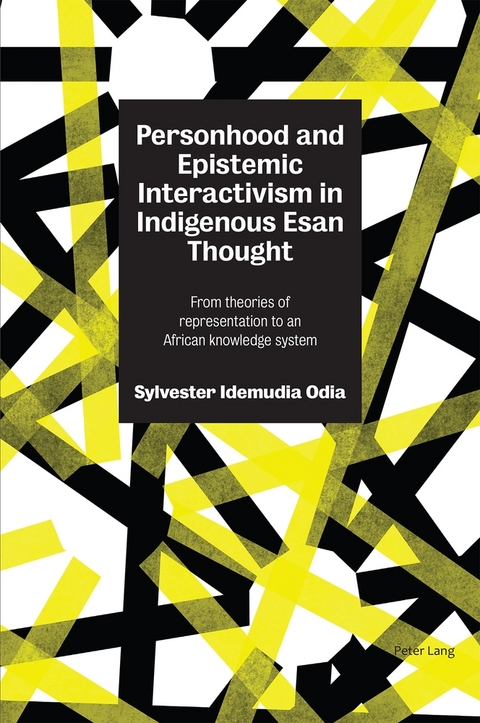
Personhood and Epistemic Interactivism in Indigenous Esan Thought
From theories of representation to an African knowledge system
Seiten
2019
|
New edition
Peter Lang International Academic Publishers (Verlag)
978-1-78997-244-3 (ISBN)
Peter Lang International Academic Publishers (Verlag)
978-1-78997-244-3 (ISBN)
Within the theoretical framework of Hegel’s epistemic interactivism and Esan epistemology, this book exposes the epistemic interactivism of Esan thought which unified the subject and person-object of knowledge; thus providing adequate basis for personhood and resolving the dehumanised relationship between the subject and person-object of knowledge.
Epistemic interactivism, an aspect of the epistemology of representation, is a cognitive intercourse between the subject and person-object of knowledge that underlies the conception of a person in Esan thought. Traditional theories of representation (especially as presented by Descartes and Locke) separated the subject from the object of knowledge, and classified persons and non-persons as object of knowledge. This separation and classification ignored the cognitive and moral values of persons, disengaged the subject from the world and burdened the self with solitude and isolation, and created propositional knowledge that dehumanised the relationship between the subject and person-object of knowledge. Within the theoretical framework of Hegel’s epistemic interactivism (meliorated by Bowne’s personalism) and Esan epistemology (in African philosophy), this book exposes the epistemic interactivism of Esan thought which unified the subject and person-object of knowledge on cognitive and moral grounds; thus providing an adequate basis for personhood and resolving the dehumanised relationship between the subject and person-object of knowledge in the traditional theories of representation.
Within the context of epistemic injustices, this book analyses the interactivist epistemology of indigenous Esan thought as an alternative epistemological conception of the person-object of knowledge which resolves the deficiency of the traditional theories of representation.
Epistemic interactivism, an aspect of the epistemology of representation, is a cognitive intercourse between the subject and person-object of knowledge that underlies the conception of a person in Esan thought. Traditional theories of representation (especially as presented by Descartes and Locke) separated the subject from the object of knowledge, and classified persons and non-persons as object of knowledge. This separation and classification ignored the cognitive and moral values of persons, disengaged the subject from the world and burdened the self with solitude and isolation, and created propositional knowledge that dehumanised the relationship between the subject and person-object of knowledge. Within the theoretical framework of Hegel’s epistemic interactivism (meliorated by Bowne’s personalism) and Esan epistemology (in African philosophy), this book exposes the epistemic interactivism of Esan thought which unified the subject and person-object of knowledge on cognitive and moral grounds; thus providing an adequate basis for personhood and resolving the dehumanised relationship between the subject and person-object of knowledge in the traditional theories of representation.
Within the context of epistemic injustices, this book analyses the interactivist epistemology of indigenous Esan thought as an alternative epistemological conception of the person-object of knowledge which resolves the deficiency of the traditional theories of representation.
| Erscheinungsdatum | 05.03.2022 |
|---|---|
| Verlagsort | Oxford |
| Sprache | englisch |
| Maße | 152 x 229 mm |
| Gewicht | 277 g |
| Themenwelt | Geisteswissenschaften ► Philosophie ► Erkenntnistheorie / Wissenschaftstheorie |
| Geisteswissenschaften ► Religion / Theologie | |
| Sozialwissenschaften | |
| ISBN-10 | 1-78997-244-2 / 1789972442 |
| ISBN-13 | 978-1-78997-244-3 / 9781789972443 |
| Zustand | Neuware |
| Haben Sie eine Frage zum Produkt? |
Mehr entdecken
aus dem Bereich
aus dem Bereich
die Grundlegung der modernen Philosophie
Buch | Softcover (2023)
C.H.Beck (Verlag)
18,00 €
Buch | Softcover (2023)
Reclam, Philipp (Verlag)
7,00 €

![Was heißt Denken?. Vorlesung Wintersemester 1951/52. [Was bedeutet das alles?] - Martin Heidegger](/media/113619842)
